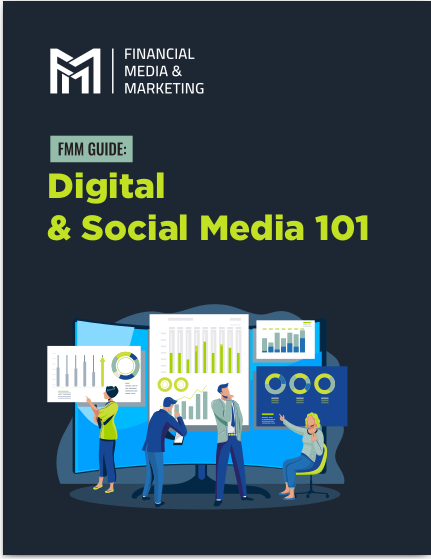Key Takeaways:
-
Optimizing your SEO strategy can significantly increase your visibility, attracting more high-quality leads to your financial advisory services.
-
Using content marketing, keyword research, and local SEO can help you stand out from competitors and establish trust with potential clients.
Why SEO Matters for Financial Advisors in 2025
With the financial advisory industry growing more competitive each year, standing out online has never been more critical. The days when referrals alone could sustain your business are long gone. Now, potential clients are searching for financial advice online, and if you’re not ranking at the top of search results, you’re missing out on valuable leads. SEO (Search Engine Optimization) is the secret weapon that can give you an edge over your competitors, helping you generate consistent inbound leads and establish authority in your niche.
Understanding the SEO Landscape for Financial Professionals
SEO is more than just stuffing keywords into your website—it’s about creating valuable content, optimizing technical elements, and making your site a trusted resource for potential clients. Here are some crucial components of SEO that financial advisors need to focus on:
1. Keyword Research: Finding the Right Terms to Rank For
One of the biggest mistakes financial advisors make is guessing which keywords to target. In reality, SEO success starts with thorough keyword research. You need to identify:
-
High-intent keywords: These are phrases potential clients type when they’re actively seeking financial advice or services.
-
Long-tail keywords: More specific queries that may have lower search volumes but higher conversion rates.
-
Local keywords: Terms related to your city or region to attract local clients who need personalized financial services.
By incorporating these keywords into your website’s content, you increase your chances of ranking higher in search results and attracting leads who are ready to take action.
2. Content Marketing: Establishing Authority Through Valuable Insights
Google prioritizes websites that provide useful, high-quality content. As a financial advisor, your website should be a hub of expert knowledge. Here’s how to make content work for you:
Blog Posts
Regularly publishing blog posts on relevant financial topics can drive organic traffic. Focus on issues that your target audience is searching for, such as retirement planning in 2025, tax-saving strategies, or investment insights for the current market.
Educational Resources
Offering downloadable guides, checklists, or calculators can engage potential clients and encourage them to provide their contact information in exchange for valuable insights.
Video Content
Video marketing is becoming increasingly important. Short explainer videos on financial concepts can improve user engagement and boost your SEO rankings.
3. Evergreen Content vs. Trending Topics
A balanced content strategy should include both evergreen content that remains relevant for years and trending topics that attract immediate traffic. Examples include:
-
Evergreen: “How to Build a Retirement Portfolio That Lasts”
-
Trending: “Investment Strategies in an Inflationary Market (2025 Update)”
On-Page SEO: Optimizing Your Website for Search Engines
On-page SEO involves optimizing the elements within your website to improve rankings. Here’s what you should focus on:
1. Meta Titles and Descriptions
Each page on your website should have a unique and keyword-rich meta title and description. These elements help search engines understand what your page is about and encourage users to click on your link.
2. Header Tags and Readability
Use clear headings (H2 and H3) to structure your content. This not only improves readability but also helps search engines understand the hierarchy of your information.
3. Internal Linking
Linking to other pages within your site can enhance user experience and boost SEO by helping search engines discover related content.
4. Mobile Optimization
With most searches happening on mobile devices, your site needs to be mobile-friendly. A slow or poorly optimized mobile experience can drive potential clients away.
5. Image and Media Optimization
Compress images to ensure fast load times and use descriptive file names and alt text to improve accessibility and SEO rankings.
Local SEO: Dominating Search Results in Your Area
Since many financial advisors serve clients in specific locations, local SEO is crucial. Here’s how you can optimize for local searches:
1. Google Business Profile Optimization
Claiming and optimizing your Google Business Profile (formerly Google My Business) can help you appear in local search results and Google Maps. Ensure your profile includes:
-
Updated contact information
-
A detailed business description with keywords
-
High-quality images
-
Positive client reviews
2. Local Directories and Citations
Getting listed in financial advisor directories and local business listings can increase your credibility and improve your local SEO rankings.
3. Reviews and Testimonials
Encouraging satisfied clients to leave positive reviews can enhance your online reputation and boost your ranking in local searches.
Off-Page SEO: Building Your Website’s Authority
Off-page SEO refers to actions taken outside your website that improve your search engine rankings. The most important factor is backlinks, which are links from other reputable sites to your website.
1. Guest Blogging
Writing articles for finance-related websites can establish you as an industry expert and earn you valuable backlinks.
2. Social Media Presence
Active social media engagement can drive traffic to your website and improve brand visibility. Share your blog posts, interact with followers, and participate in finance-related discussions.
3. Digital PR and Partnerships
Getting featured in financial news sites, podcasts, or industry reports can boost your credibility and attract high-quality backlinks.
Technical SEO: Ensuring Your Website Runs Smoothly
Even with great content, a poorly functioning website can hurt your rankings. Here are some technical SEO aspects to monitor:
1. Website Speed
A slow-loading site can lead to higher bounce rates. Use tools like Google PageSpeed Insights to identify and fix performance issues.
2. Secure Website (HTTPS)
Ensure your website has an SSL certificate to protect client data and improve trustworthiness.
3. Structured Data
Adding structured data (schema markup) can help search engines better understand your content and display rich snippets in search results.
4. Core Web Vitals
Google’s Core Web Vitals assess page speed, responsiveness, and visual stability, all of which impact search rankings.
Measuring SEO Success: Tracking Key Metrics
SEO is an ongoing process, and tracking your progress is essential. Key metrics to monitor include:
-
Organic traffic: The number of visitors coming from search engines.
-
Keyword rankings: How your target keywords are performing in search results.
-
Bounce rate: The percentage of visitors who leave your site without interacting.
-
Conversion rate: The number of visitors who take desired actions, such as booking a consultation.
Stay Ahead of the Competition with an SEO-Driven Strategy
By investing in SEO, you can future-proof your financial advisory business and ensure a steady stream of high-quality leads. The financial industry is evolving, and those who adapt will thrive. Take control of your online presence, optimize your content, and dominate search engine rankings to stay ahead of your competitors in 2025 and beyond.










